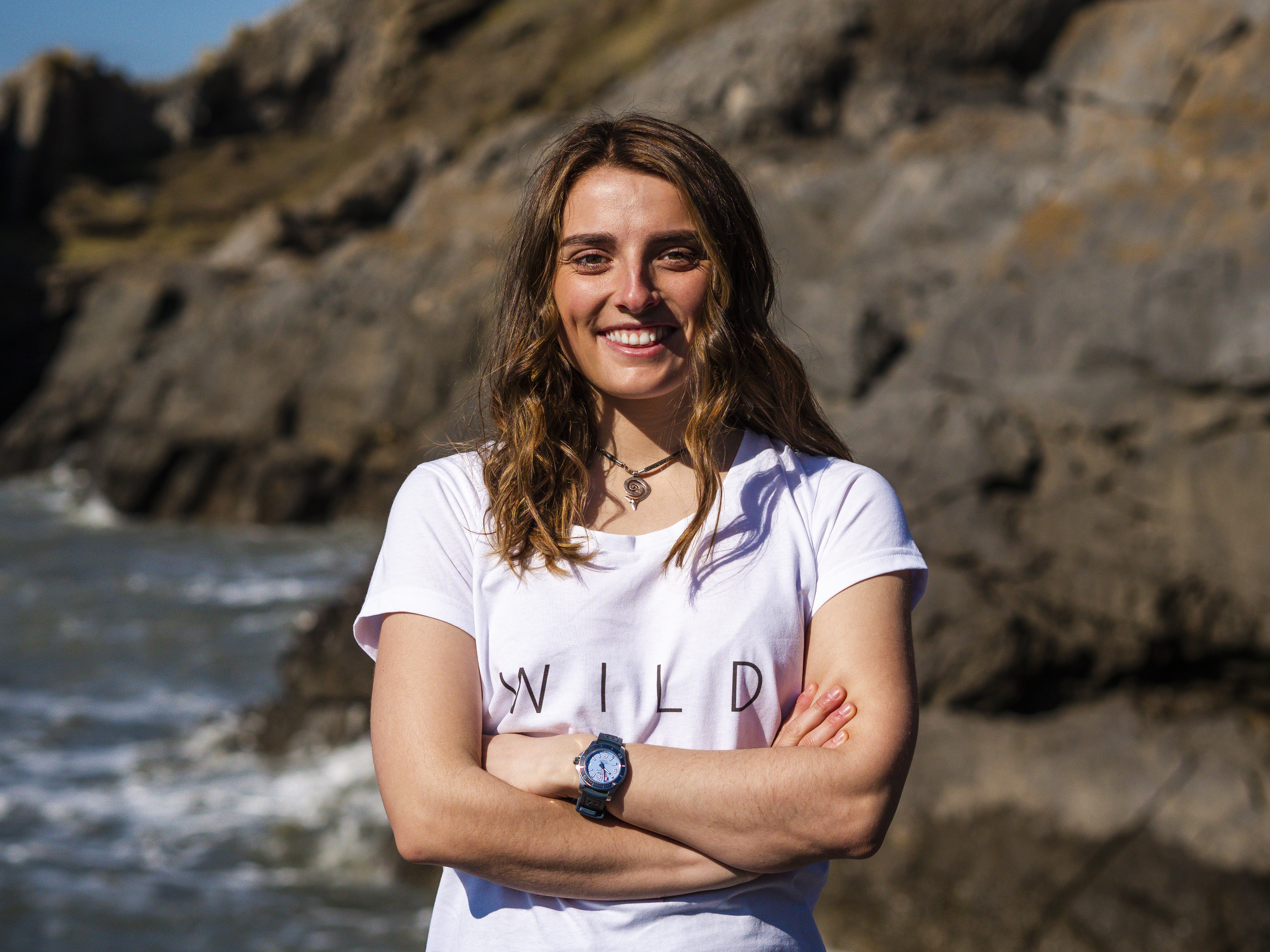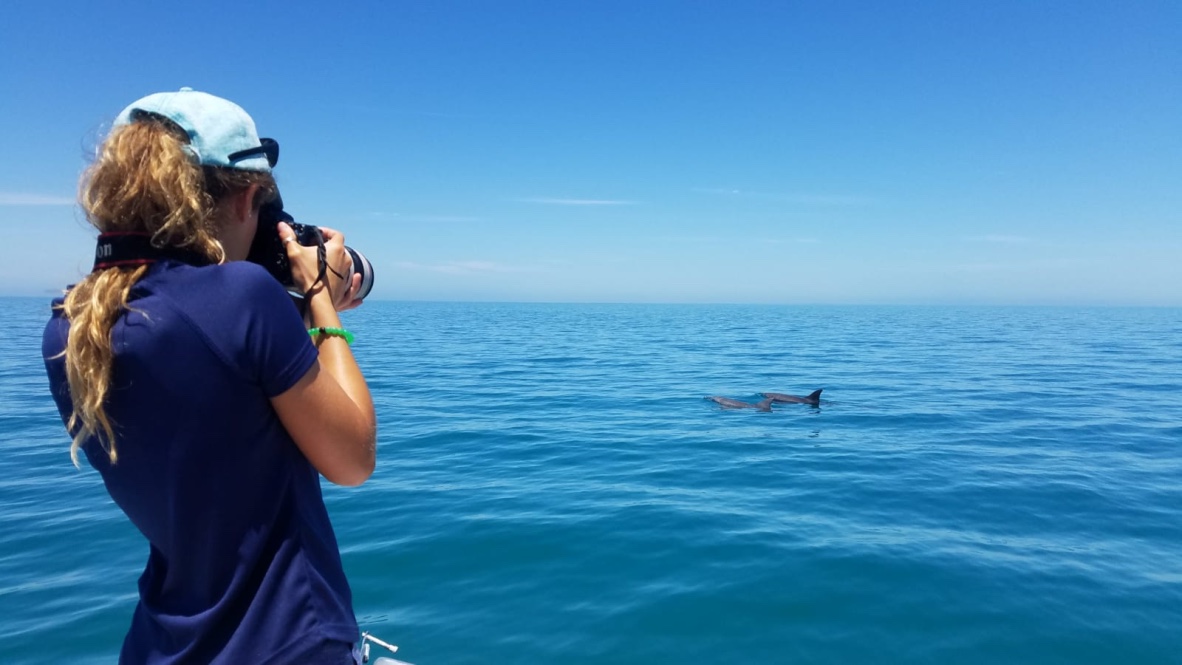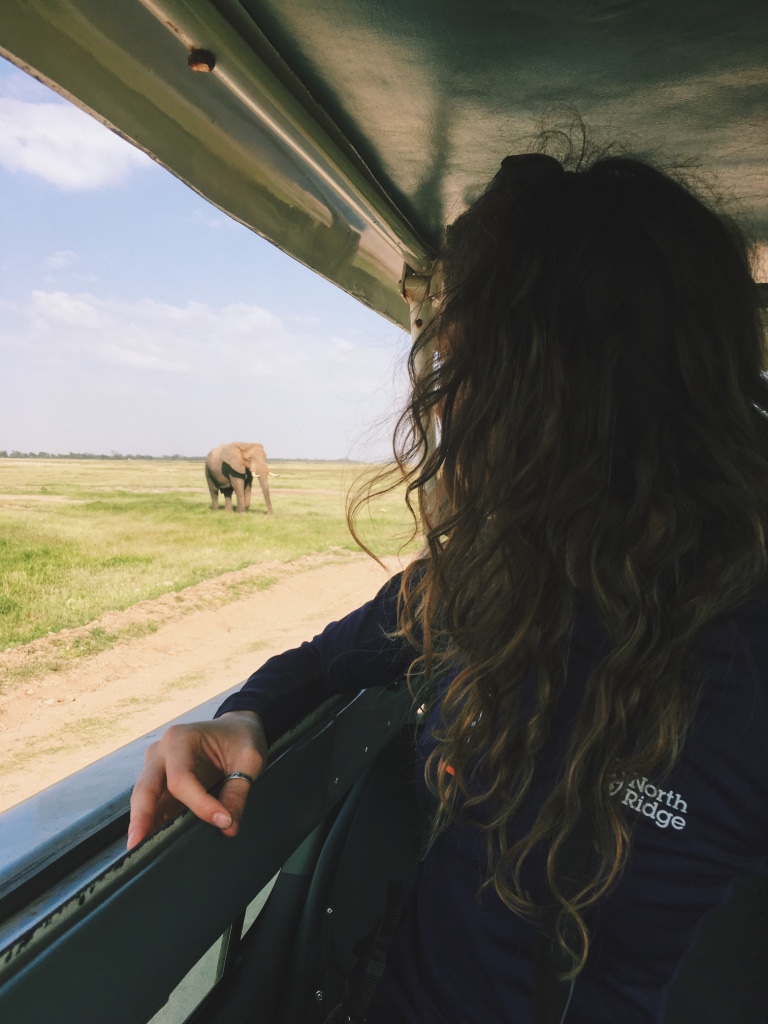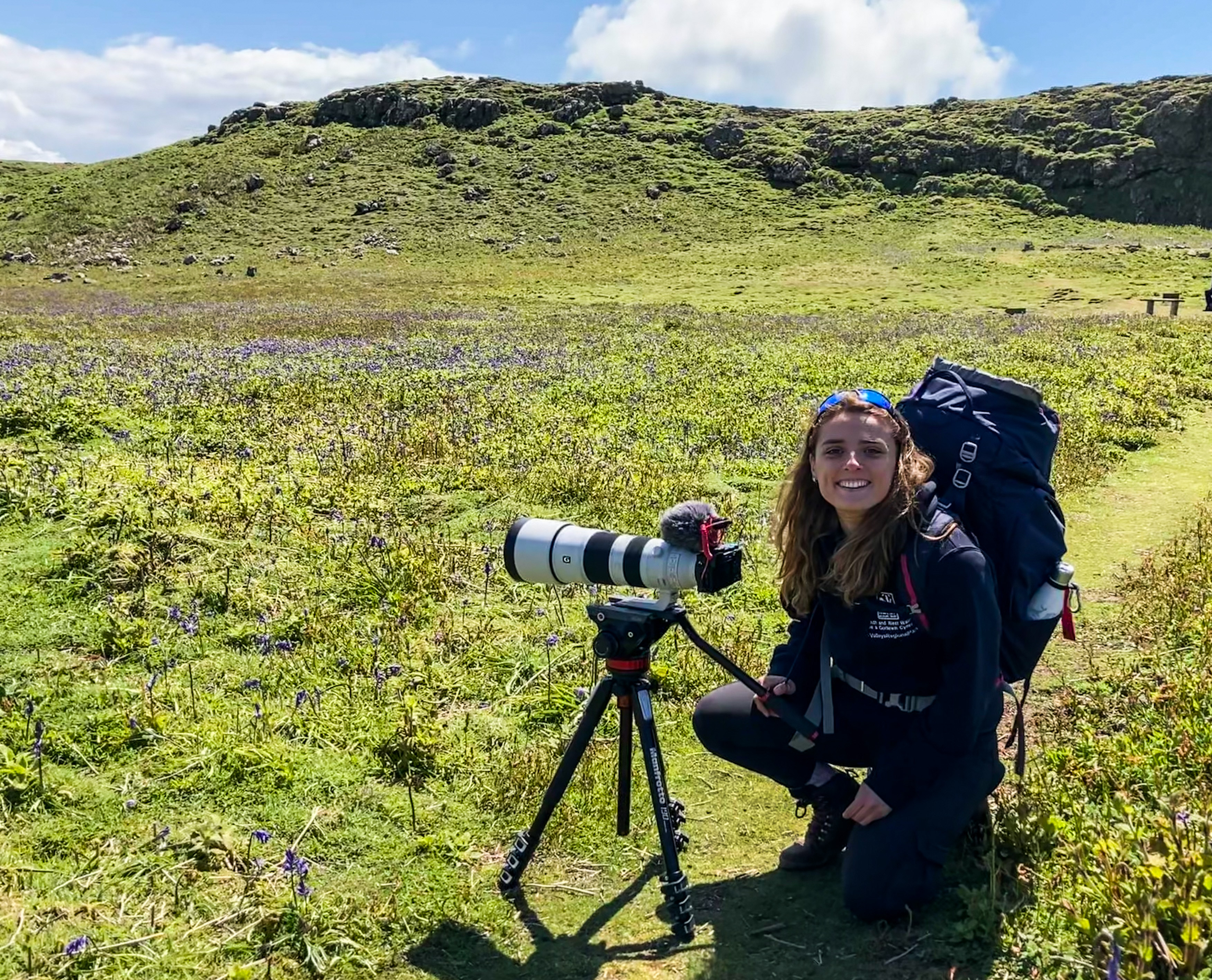We are looking back on some of our MSc graduates who have excelled in scientific research, ecology and conservation around the world since studying with us.
Today we meet Madi who graduated from MSc Evolutionary and Behavioural Ecology in 2018 and now works in the Digital Communications team for The Wildlife Trust of South and West Wales (WTSWW).

Hi Madi, it’s only been a couple of years since you studied with us, why don’t you tell us a bit about your career in that time that led you to where you are now?
After graduating, I was fortunate enough to secure a research position with The Dolphin Alliance Project in Western Australia, researching the alliance and communication development of Indo-Pacific Bottlenose Dolphins under Dr. Stephanie King (University of Bristol). After three months of field work, I came home and continued working on my Master’s Thesis project. After spending some time in London for data collection, I worked on publishing my research and communicating my work to various audiences e.g., presenting at the Association for the Study of Animal Behaviour (ASAB) Easter Conference in York and giving guest lectures for the local Trust at Swansea University.
During this time, I continued working as a biologist and marine wildlife guide with a local ocean adventure company and started progressing my freelance science communication work, digitally and within local schools (www.madisonwildlife.com). I also took the opportunity to continue education and undertake practical ecology courses and volunteer with my local Wildlife Trust – and of course, have some well-deserved enjoyment after working hard! When COVID hit and I was unable to work on the boat, I continued searching for jobs suitable to my experience and interests. I was able to secure a position as an Environment Officer with my local council and during this time, publish my first first-author paper (of my Master’s work) in the Open Access PeerJ. Now, a year later, I am working within wildlife and conservation communications for The Wildlife Trust of South and West Wales.

We are glad you have had such great experiences, how do you think the MSc help prepare you for your next steps?
The course helped me become a confident researcher, as well as a confident communicator. There were countless opportunities to work alongside academics on side projects and volunteer with extra activities to learn new skills, and combined with the lectures, presentations, group work and the opportunity for independent working, the diversity of the course equipped me skills that were transferable for research, communication and industry positions.
 Why don’t you give us a bit of background about what made you choose to study your MSc with us at the University of Exeter Cornwall Campus?
Why don’t you give us a bit of background about what made you choose to study your MSc with us at the University of Exeter Cornwall Campus?
There isn’t a course comparable to the EBE course at Exeter. Being taught by academics at the top of their field, the opportunities to explore a breadth of research projects, state-of-the-art facilities, 7th in the world for ecology, a thriving research community and the progression and openness for students to diversify and pursue non-academic extra circular work was a breath of fresh air. I knew that this course would fulfil me within my academic progression but also allow me the time to pursue my other passions that were non-academic related. I had already studied on the campus for my Undergraduate and I absolutely fell in love with the campus and the area, but the EBE course was exactly the direction I wanted to go into next. I knew that Exeter had a great postgraduate community, approachable and supportive staff and lots of extra circular activities that diversified from the course you were studying, so on top of the unique Master’s, I knew I wanted to stay another year.
We are glad you enjoyed it as much as we do, what are your highlights from studying at the University of Exeter?
There are so many! Our research field trip to Kenya was a major highlight. As part of my short research project in Kenya, I spent time researching the affiliative and social behaviours of Plains Zebra in Hells Gate National Park, now that’s pretty epic and was a field trip I’ll never forget! The statistical lectures with Dr. Erik Postma were fantastic, very engaging and supportive and my supervisor, Dr. Neeltje Boogert is a huge contributor to who I am as an academic now. The postgraduate research community at the University of Exeter, Penryn Campus is vibrant and supportive. This really stood out to me whilst studying and was a highlight of my Master’s year. The year was possibly one of the best experience’s I’ve had, and I’d love to do it all over again.

Why did you choose to pursue a career in science communication?
Communicating science and raising awareness are incredibly important for influencing motivation and initiating positive actions for wildlife. I am thankful for the opportunities this course has given me, the wildlife I have been witness to (my first ever Elephant and Southern White Rhino sightings on the Kenya Field Course!) and the knowledge I have gained through studying with Exeter. These once in a lifetime experiences have led me to work within conservation communications and have showed me firsthand why I do what I do!
Do you have any advice for those looking to pursue something similar?
Keep going! Ask questions, stay curious and be resilient. In general, a career within biosciences and science communication comes with a lot of ‘no’s’, so making sure you take each rejection with a pitch of salt is key to staying focused. Put yourself out there and don’t be afraid to send that email or spark up a conversation with that academic you’ve been wanting to. Volunteer some of your time, work hard and give yourself a break, you’re doing great!
Finally, do you have any plans for the future?
I’m very excited for what the future holds and I look forward to progressing with science communication and my research goals!
Thank you Madi!
If you want to read more profiles from MSc Evolution and Behavioural Ecology graduates follow this link or explore our Graduate in Focus homepage to learn more about the degree programmes we have on offer!

